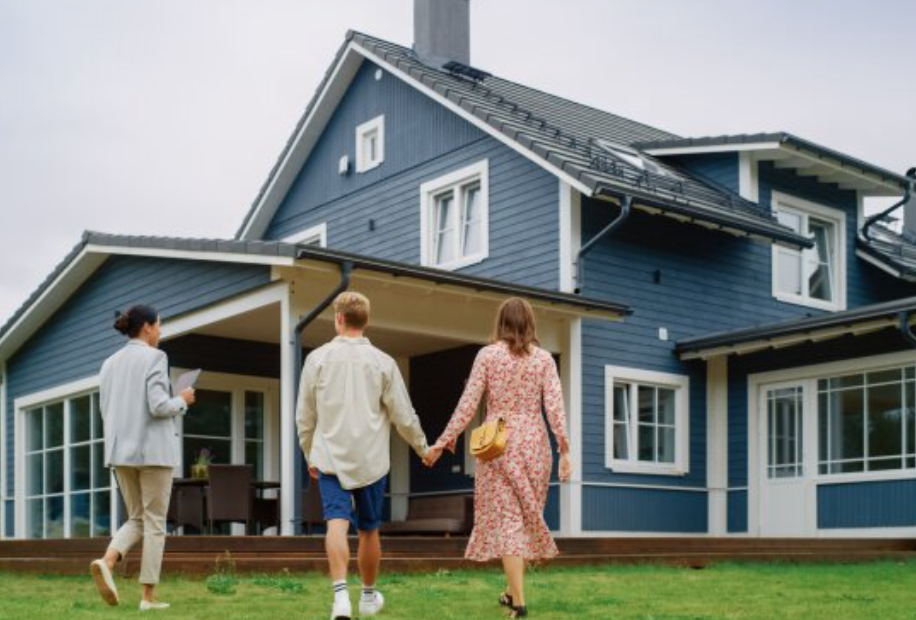Buying a house or apartment in Medellín as a tourist is possible, but it involves several steps, legal considerations, and financial planning. Here’s a comprehensive guide:
1. Eligibility
- Foreign Ownership: Colombia allows foreigners, including tourists, to buy property without any restrictions. You do not need to be a resident or have a specific visa to purchase real estate.
- Tourist Visa: While a tourist visa is sufficient to buy property, it does not grant you the right to stay in Colombia long-term. If you plan to live in the property, you’ll need to explore visa options.
2. Researching the Market
- Property Types: Medellín offers a range of properties, from apartments in high-rise buildings to houses in more suburban or rural areas. Popular neighborhoods for foreigners include El Poblado, Laureles, and Envigado.
- Real Estate Prices: Prices vary significantly depending on the neighborhood, property size, and amenities. For example, in El Poblado, prices can range from COP 400 million to over COP 1 billion (USD 100,000 – 250,000) for an apartment.
- Real Estate Agents: It’s advisable to work with a reputable real estate agent, especially if you are unfamiliar with the local market. Many agents in Medellín speak English and can help you navigate the process.

3. Legal Requirements
- Identificación Tributaria (NIT): While you don’t need a Cedula de Extranjería (foreign ID), you will need a NIT, which is a tax identification number, to purchase property. This can be obtained from DIAN, the Colombian tax authority.
- Public Deed (Escritura Pública): The property transfer must be registered through a public deed, which is signed before a Notary Public. This document confirms the transfer of ownership.
- Title Search: Conduct a title search (Estudio de Títulos) to ensure that the property has a clear title with no encumbrances, liens, or unpaid taxes. This is typically done by a lawyer.
4. Financing
- Paying Cash: Most foreign buyers pay in cash, as securing a mortgage in Colombia can be difficult for non-residents. If you plan to pay in cash, be prepared to transfer the funds from your home country.
- Bank Transfers: Ensure you understand the process and costs of international bank transfers. You’ll need to declare the funds with the Central Bank of Colombia (Banco de la República) if the amount exceeds certain thresholds.
- Mortgages: While it’s possible for foreigners to obtain a mortgage from a Colombian bank, the requirements are stringent, and the interest rates are typically higher. It may be easier to finance the purchase through a bank in your home country.

5. Costs Involved
- Property Price: The agreed-upon price of the property, which is typically paid in Colombian pesos.
- Notary Fees: These fees cover the cost of drafting the public deed and other notarial services. They usually range from 0.3% to 0.5% of the property’s value.
- Registration Fees: You must register the property with the local registry office (Oficina de Registro de Instrumentos Públicos), which costs about 1.5% of the property’s value.
- Taxes: The buyer is responsible for paying the property transfer tax (Impuesto de Registro), which is around 1% of the property’s value. Annual property taxes (Predial) will also apply.
- Legal Fees: If you hire a lawyer to assist with the process, legal fees typically range from 0.5% to 1% of the property’s value.
6. The Buying Process
- Offer and Acceptance: Once you find a property, you’ll make an offer. If the seller accepts, you’ll sign a preliminary sales agreement (Promesa de Compraventa) and typically pay a deposit (10% of the purchase price).
- Due Diligence: During this period, you’ll conduct a title search, confirm the property’s legal status, and arrange for the transfer of funds.
- Finalizing the Sale: After due diligence, you’ll sign the public deed at a notary’s office, and the remaining balance will be paid to the seller. The property is then registered in your name.
- Property Registration: The final step is registering the property in the public registry, officially transferring ownership to you.

7. Visas and Residency
- Investment Visa: If you invest more than a certain amount in Colombian real estate (approximately USD 150,000), you may be eligible for an investment visa. This visa can lead to permanent residency.
- Tourist Visa Considerations: While you can buy property on a tourist visa, it does not grant you the right to live in Colombia long-term. Consider applying for a visa if you plan to stay.
8. Managing Your Property
- Property Management: If you’re not living in Medellín year-round, you may want to hire a property management company to handle rentals, maintenance, and bill payments.
- Rental Income: Medellín’s rental market is strong, especially in popular neighborhoods. You can rent out your property to tourists or long-term tenants.

9. Cultural Considerations
- Bargaining: Negotiation is common in Colombian real estate transactions. Don’t be afraid to negotiate the price and terms.
- Language: Most real estate documents will be in Spanish, so it’s advisable to have a translator or lawyer who can explain the details in your native language.
10. Summary
- Buying property in Medellín as a tourist is a straightforward process, but it requires careful planning and understanding of local laws and customs. Ensure you have all the necessary documents, work with a reputable real estate agent and lawyer, and understand the costs involved. If you plan to live in the property, explore visa options that may allow you to stay in Colombia long-term.


